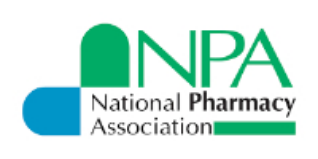-
NHS
-
Oldham Services
-
Shop
-
Help & Advice
Hay fever or Pollen Allergy is a common condition with symptoms similar to those of a cold. In addition, there may be sneezing, congestion, runny nose, and sinus pressure. These symptoms are caused by an allergic response to airborne substances, such as pollen. It may take place any time of the year, depending on what substance or allergen the individual reacts to.
In addition, pollen, pet dander, mould and insects can lead to hay fever symptoms. Hay fever can make you feel disgusting, but you can find relief with some lifestyle changes, allergy treatments and immunotherapy (allergy shots).
While spring is upon us, the grass is starting to become greener. Grass pollen is beginning to appear in the air. As a result, we are getting more frequent calls from our customers enquiring about hay fever tablets such as Cetirizine, Loratadine and Benadryl. These are commonly used for hay fever prevention and treating symptoms caused by seasonal allergies.
Pollen is one of the most common sources of Hay fever and allergies. In different seasons plants release tiny pollen grains to fertilize other plants of the same species. Most of the allergy-causing pollens come from trees, weeds and grasses. These plants produce small, light and dry pollen grains that travel by air.
Hay fever symptoms generally start showing immediately after you’re exposed to the allergen. These Allergens can be anywhere seasonally or for the whole year.
These allergen substances will trigger your immune system, which mistakenly identifies the substance as something harmful. So your immune system produces antibodies to defend your body in response to this. But, unfortunately, antibodies signal your blood vessels to widen and for your body to produce inflammatory chemicals, like histamine. It’s this response that causes hay fever or Allergic symptoms.
The possibility of developing allergies also increases if someone in your heredity has had allergies. Several studies have found that if parents have allergy-related conditions, it raises the chances of their children developing hay fever. However, asthma, and eczema that isn’t allergy-related, don’t affect your risk factor for hay fever.
Your doctor can usually detect a pollen allergy. However, they may refer you to an allergist for allergy testing to confirm the diagnosis.
If you have a pollen allergy or any other allergy and breathe in pollen-heavy air or come in contact with other allergens, you may experience symptoms such as:
Allergens can also trigger asthma symptoms, including increased coughing and wheezing.
Although avoiding the allergen is a vital treatment approach, it usually doesn’t ultimately end the allergic reaction. One essential tip for the treatment of Hay fever or pollen allergy is to move ahead of pollen season. For instance, if your symptoms show their worst, typically in mid-April, start taking your medicines at the end of March.
In the same way, if the weather calls for a run of warm weather toward the end of winter, it might be clever to begin taking your treatment at that time as well. Speak to your allergist or doctor about medications that can be taken in advance of pollen season.
Medicines such as antihistamines, decongestants, or a combination of over-the-counter and prescription medications are used to manage your allergy symptoms. Nasal spritz such as topical nasal steroids, cromolyn sodium, and topical nasal antihistamines also can be used to treat allergy symptoms.
Asthma medications, which reduce allergy symptoms, include:
Immunotherapy, also called allergy shot treatment or oral allergy immunotherapy, is advised if your symptoms aren’t completely controlled even after taking complete measures to avoid exposure to allergens and having regular medicines. This allergy shot has been shown to be effective in appropriately selected patients with Pollen allergy(hay fever) and allergic asthma.
Another great treatment option is saline irrigation using a sinus rinse kit. These saline rinse kits are sold over-the-counter or can be made at home. To make your own saline rinse, combine one-half teaspoon non-iodinated salt with one-half teaspoon baking soda in 20 tablespoons of distilled or boiled water. This mixture rinses out allergens and reduces the amount of inflammation they cause.
Our pharmacy store offers a wide range of anti-allergy medications, including Cetirizine, Loratadine and Benadryl, and Nasal Sprays! In addition, our online store stocks many of the most common allergy medications that are available to buy in the UK, even Opticrom allergy eye drops. This includes allergy tablets such as Cetirizine for seasonal allergies such as hayfever, loratadine tablets for grass and weed allergies and Benadryl capsules to combat seasonal pollen allergies.

